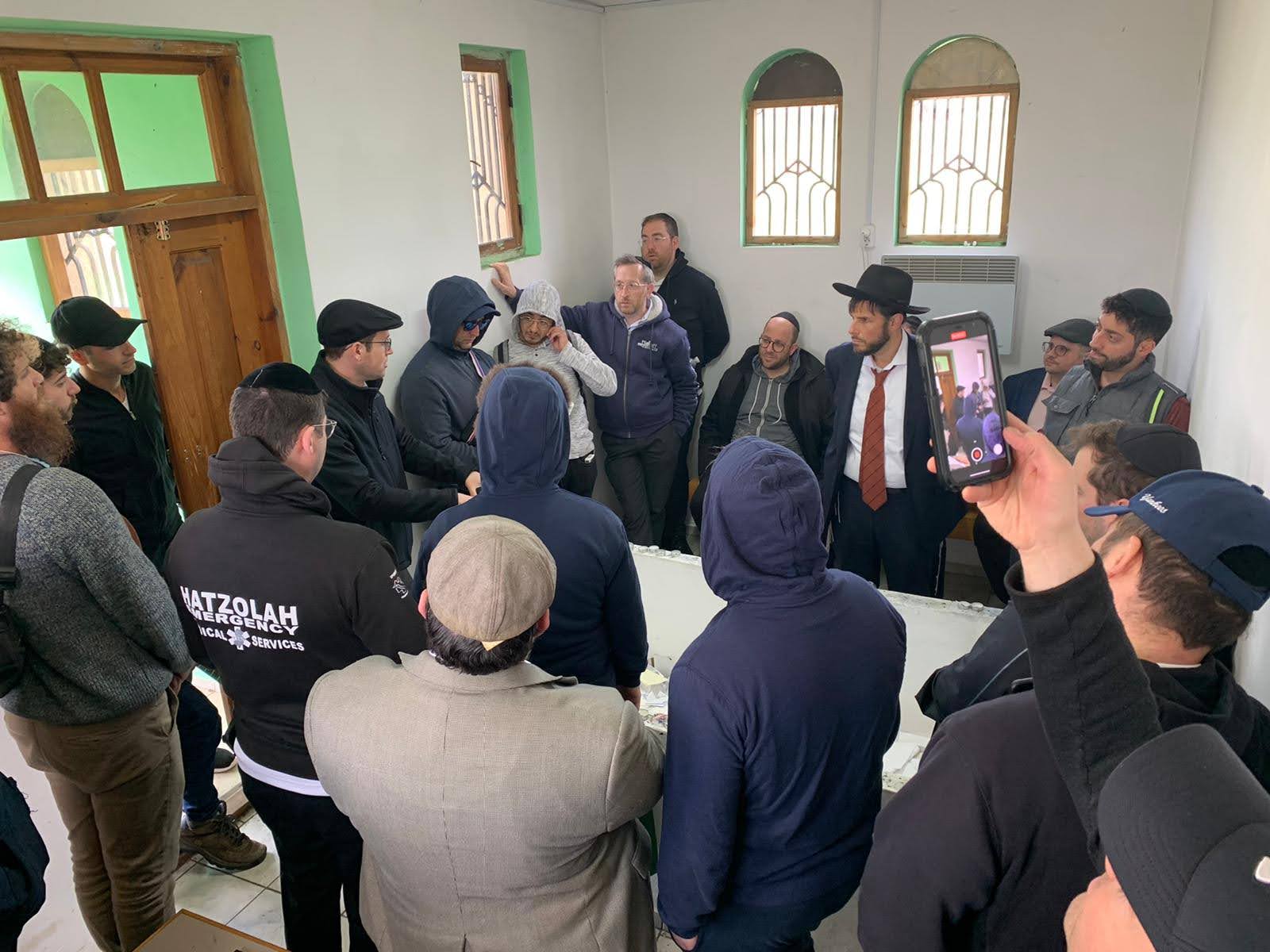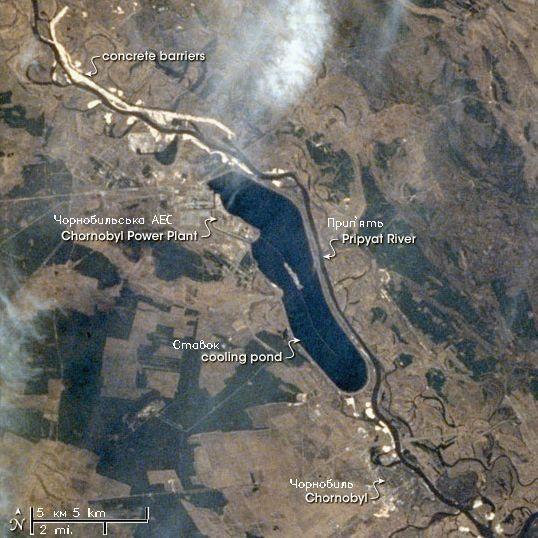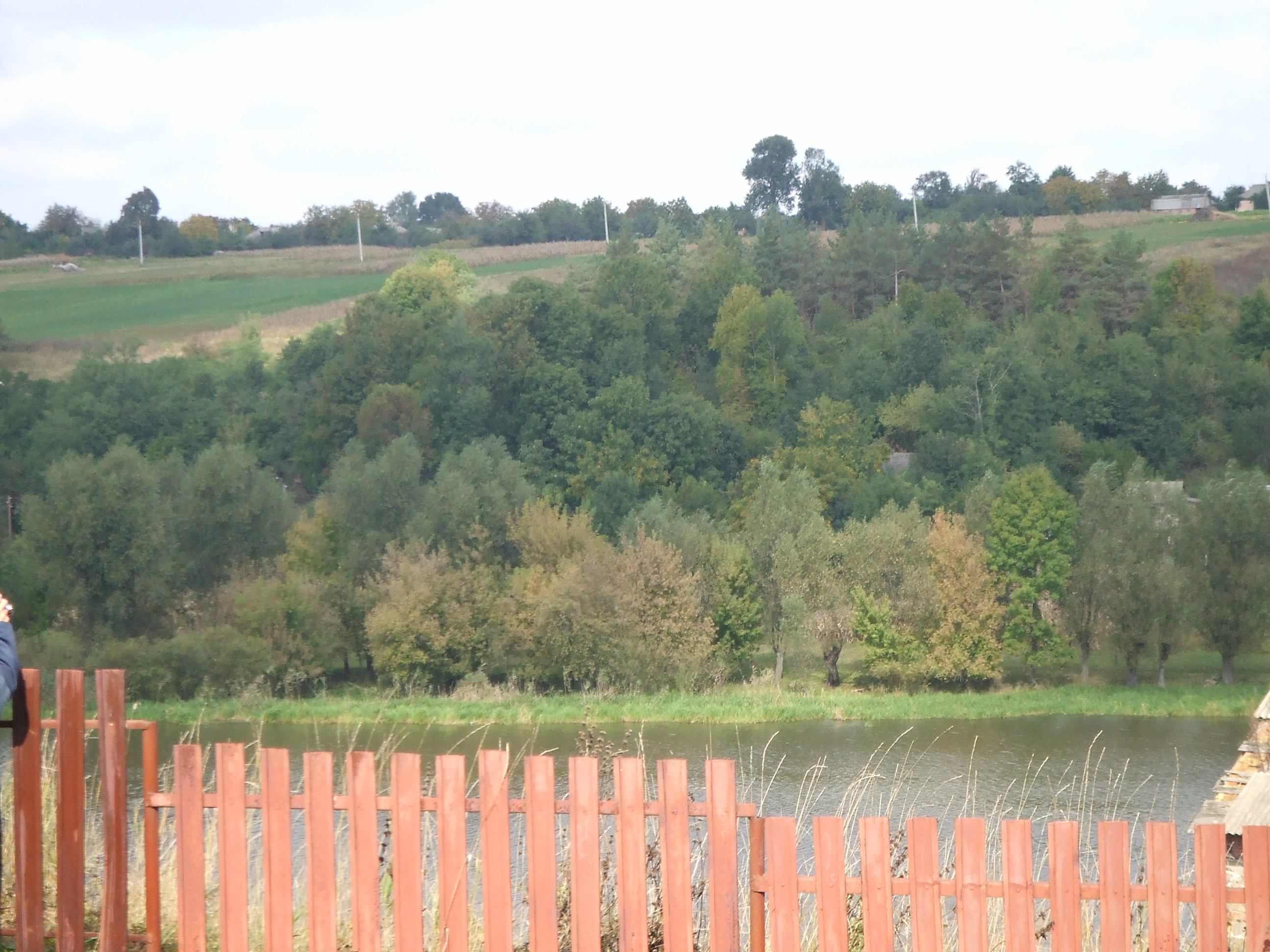|
Aaron Twersky Of Chernobyl
Aaron Twersky of Chernobyl (1784–1871) was a Ukrainian rabbi. He succeeded his father Rabbi Mordechai Twersky as rebbe of the Chernobler chasidim. Biography Aaron Twersky was born in Chernobyl in 1784, the first-born of Rabbi Mordechai Twersky and Chayo Soro (daughter of Rabbi Aaron the Great of Karlin). He received his education from his grandfather, Rabbi Menachem Nachum Twersky of Chernobyl. He married the daughter of Rabbi Gedalyo of Linits (author of ''Teshuos Chein''), who bore him two daughters, Chayo Soro (who married Yisroel, grandson of Rabbi Nachman of Breslov) and Perl (who married Rabbi Yitschok of Berezne). Twersky later married the daughter of Rabbi Tsvi of Korostyshiv. She bore him three sons – Menachem Nochum of Loiev, Yeshayo Meshulom Zishe of Chernobyl and Boruch Osher of Chernobyl – and a daughter, Feygl, who married Rabbi Duvid Moshe Friedman of Czortków. He wrote an approbation to ''Or laYshorim'' by Rabbi Yechiel Michel Epstein Yechiel M ... [...More Info...] [...Related Items...] OR: [Wikipedia] [Google] [Baidu] |
Mordechai Twersky
Mordechai Twersky (1770–1837), known as the ''Maggid'' of Chernobyl, was a Ukrainian rabbi. He was the son of Rabbi Menachem Nachum Twersky of Chornobyl and the second rebbe of the Chernobyl Hasidic dynasty. (The family surname originally comes from Tiberias, as in Lake Tiberias). All of his sons served as rebbes, from whom several branches of Hasidism emerged today, including thousands of Chasidim, including Skver, Chernobyl and Rachmastrivka. Biography Twersky was born in Chernobyl to Sarah and Rabbi Menachem Nachum of Chernobyl, a disciple of the Baal Shem Tov and the Maggid of Mezeritch and author of the book ''Me'or Einayim''. Twersky married Chaya Sara the daughter of Rabbi Aharon of Karlin; after her death he married Faiga the daughter of Rabbi Dovid Leykes who was a student of the Baal Shem Tov. He had eight sons and one daughter. His sons became prominent rebbes and were a part of the effort in spreading Chasidus throughout Ukraine. Rabbi Mordechai had many Hasi ... [...More Info...] [...Related Items...] OR: [Wikipedia] [Google] [Baidu] |
Korostyshiv
Korostýšiv (, , ) is a city in Zhytomyr Raion, Zhytomyr Oblast, Ukraine. Prior to 2020, it served as the administrative center of the former Korostyshiv Raion. Population: History The city was founded around the VI-VII centuries. According to legend, the town was called Khminychi and was the center of one of the Drevlians tribes, the Minskians. The first written mention as a village of Zhitomirsky Uyezd, Kyiv Voivodeship of the Grand Duchy of Lithuania dates back to March 26, 1499. For sixty-five years it belonged to the Chornobyl Kmyts, a well-known and influential family of Right-bank Ukraine. Since 1565, after it was sold by Filon Kmita, the town became the property of the Olizar family, who later received the title of counts. In July 1768, Ivan Bondarenko's Cossacks visited the town. In 1779, Magdeburg rights and a coat of arms were granted with the image of the family emblem of the Olizar Counts: a golden church flag with a cross on a red background (noble coat of a ... [...More Info...] [...Related Items...] OR: [Wikipedia] [Google] [Baidu] |
People From Chornobyl
A person ( : people) is a being that has certain capacities or attributes such as reason, morality, consciousness or self-consciousness, and being a part of a culturally established form of social relations such as kinship, ownership of property, or legal responsibility. The defining features of personhood and, consequently, what makes a person count as a person, differ widely among cultures and contexts. In addition to the question of personhood, of what makes a being count as a person to begin with, there are further questions about personal identity and self: both about what makes any particular person that particular person instead of another, and about what makes a person at one time the same person as they were or will be at another time despite any intervening changes. The plural form "people" is often used to refer to an entire nation A nation is a community of people formed on the basis of a combination of shared features such as language, history, ethnicity, cult ... [...More Info...] [...Related Items...] OR: [Wikipedia] [Google] [Baidu] |
Rebbes Of Chernobyl
A Rebbe ( yi, רבי, translit=rebe) or Admor ( he, אדמו״ר) is the spiritual leader in the Hasidic movement, and the personalities of its dynasties.Heilman, Samuel"The Rebbe and the Resurgence of Orthodox Judaism."''Religion and Spirituality (Audio)''. UCTV, 20 Oct 2011. web. 31 Jul 2013. The titles of Rebbe and Admor, which used to be a general honor title even before the beginning of the movement, became, over time, almost exclusively identified with its Tzaddikim. Terminology and origin Usage Today, ''rebbe'' is used in the following ways: # Rabbi, a teacher of Torah – Yeshiva students or ''cheder'' (elementary school) students, when talking to their teacher, would address him with the honorific ''Rebbe'', as the Yiddish-German equivalent to the Hebrew word ''rabbi'' ( ' ). # Personal mentor and teacher—A person's main Rosh Yeshiva, Yeshiva teacher, or mentor, who teaches him or her Talmud and Torah and gives religious guidance, is referred to as ''rebbe'' ( ... [...More Info...] [...Related Items...] OR: [Wikipedia] [Google] [Baidu] |
1871 Deaths
Events January–March * January 3 – Franco-Prussian War – Battle of Bapaume: Prussians win a strategic victory. * January 18 – Proclamation of the German Empire: The member states of the North German Confederation and the south German states, aside from Austria, unite into a single nation state, known as the German Empire. The King of Prussia is declared the first German Emperor as Wilhelm I of Germany, in the Hall of Mirrors at the Palace of Versailles. Constitution of the German Confederation comes into effect. It abolishes all restrictions on Jewish marriage, choice of occupation, place of residence, and property ownership, but exclusion from government employment and discrimination in social relations remain in effect. * January 21 – Giuseppe Garibaldi's group of French and Italian volunteer troops, in support of the French Third Republic, win a battle against the Prussians in the Battle of Dijon. * February 8 – 1871 French legislative election el ... [...More Info...] [...Related Items...] OR: [Wikipedia] [Google] [Baidu] |
1784 Births
Events January–March * January 6 – Treaty of Constantinople: The Ottoman Empire agrees to Russia's annexation of the Crimea. * January 14 – The Congress of the United States ratifies the Treaty of Paris with Great Britain to end the American Revolution, with the signature of President of Congress Thomas Mifflin.''Harper's Encyclopaedia of United States History from 458 A. D. to 1909'', ed. by Benson John Lossing and, Woodrow Wilson (Harper & Brothers, 1910) p167 * January 15 – Henry Cavendish's paper to the Royal Society of London, ''Experiments on Air'', reveals the composition of water. * February 24 – The Captivity of Mangalorean Catholics at Seringapatam begins. * February 28 – John Wesley ordains ministers for the Methodist Church in the United States. * March 1 – The Confederation Congress accepts Virginia's cession of all rights to the Northwest Territory and to Kentucky. * March 22 – The Emerald Buddha is install ... [...More Info...] [...Related Items...] OR: [Wikipedia] [Google] [Baidu] |
Yechiel Michel Epstein
Yechiel Michel ha-Levi Epstein ( he, יחיאל מיכל הלוי אפשטיין) (24 January 1829 – 25 March 1908), often called "the ''Aruch haShulchan''" after his magnum opus, Aruch HaShulchan, was a Rabbi and ''Posek'' (authority in Jewish law) in Lithuania. Biography Rabbi Yechiel Michel Epstein was born on 24 January 1829 in Babruysk, Russian Empire (presently in Belarus) to Aharon Yitzchak and Rashka Epstein. His father Aharon Yitzchak Epstein was a builder and contractor who spend much of his time traveling for his work, which were often projects of the Czarist government. He had one brother, Benjamin Beinush Epstein, who lived in Saint Petersburg. The two brothers stayed in touch over the years, and when Epstein needed to travel to Saint Petersburg - usually to submit his writings to the Russian censor before publishing - he would stay at his brother's house. As a child, Epstein studied in a traditional Cheder. His original intent was to follow in his father's ... [...More Info...] [...Related Items...] OR: [Wikipedia] [Google] [Baidu] |
Czortków
Chortkiv ( uk, Чортків; pl, Czortków; yi, ''Chortkov'') is a city in Chortkiv Raion, Ternopil Oblast (Oblast, province) in western Ukraine. It is the Capital city, administrative center of the Chortkiv Raion (Raion, district), housing the district's local administration buildings. Chortkiv hosts the administration of Chortkiv urban hromada, one of the hromadas of Ukraine. Population: Chortkiv is located in the northern part of the historic region of Eastern Galicia, Galician Podolia on the banks of the Seret River. In the past Chortkiv was the home of many Hasidic Judaism, Hasidic Jews; it was a notable shtetl and had a significant number of Jews residing there prior to the Holocaust. Today, Chortkiv is a regional commercial and small-scale manufacturing center. Among its architectural monuments is a fortress built in the 16th and 17th centuries as well as Wooden churches in Ukraine, historic wooden churches of the 17th and 18th centuries. History The first histori ... [...More Info...] [...Related Items...] OR: [Wikipedia] [Google] [Baidu] |
Duvid Moshe Friedman
Chortkov (also ''Chortkov'', ''Tshortkov'', ''Czortkow'') is a Hasidic dynasty that originated in Chortkiv ( pl, Czortków), present-day Ukraine. The town was part of the Tarnopol Voivodeship of the Second Polish Republic until September 1939. The town itself was founded in 1522 by Polish King Sigismund I the Old. The dynasty had a large following before the Second World War, but most of its adherents were murdered in the Holocaust. Chortkov is one of the branches of the Ruzhiner dynasty, together with the Bohush, Boyan, Husiatyn, Sadigura, Kapishnitz, Vasloi, and Shtefanesht dynasties. Chortkov dynasty history Rav Duvid Moshe Friedman The first Rebbe of Chortkov was Rabbi Duvid Moshe Friedman (1828–1903), son of Rabbi Yisroel Friedman of Ruzhyn. He was born in 1828 on the festival of Shavuos. His first wife was the daughter of Rabbi Aaron Twerski of Chernobyl. His second wife was his first cousin, a daughter of his brother Rabbi Shalom Yosef Friedman of Sadigura. In ... [...More Info...] [...Related Items...] OR: [Wikipedia] [Google] [Baidu] |
Berezne
Berézne ( uk, Бере́зне, russian: Берёзно, pl, Bereźne) is a city in Rivne Oblast, Ukraine, located on the Sluch River north of Rivne. It is the administrative centre of the Berezne Raion. Population: Overview Berezne (historically known also as Bereźno as well as pl, Jędrzejów, and uk, Андріїв) was established in 1446 within the Polish–Lithuanian Commonwealth. Since the Union of Lublin the town was part of the Kingdom of Poland, where it remained until the Partitions of Poland by Austria, Prussia and Russia. The town was overrun by Khmelnytsky in the Khmelnytsky Uprising of 1648 and experienced bloody pogroms which took many innocent lives. Annexed by the Russian Empire in 1793, Berezne was ceded to Poland in 1919–21 during the Peace of Riga. In the Second Polish Republic there was a garrison of the Border Protection Corps Bereźne Battalion in the town. Until the Soviet invasion of Poland in 1939, Bereźne belonged the Wołyń Voivodeship's ... [...More Info...] [...Related Items...] OR: [Wikipedia] [Google] [Baidu] |
Chernobyl
Chernobyl ( , ; russian: Чернобыль, ) or Chornobyl ( uk, Чорнобиль, ) is a partially abandoned city in the Chernobyl Exclusion Zone, situated in the Vyshhorod Raion of northern Kyiv Oblast, Ukraine. Chernobyl is about north of Kyiv, and southwest of the Belarusian city of Gomel. Before its evacuation, the city had about 14,000 residents, while around 1,000 people live in the city today. First mentioned as a ducal hunting lodge in 1193, the city has changed hands multiple times over the course of history. Jews moved into the city in the 16th century, and a now-defunct monastery was established in the area in 1626. By the end of the 18th century, Chernobyl was a major centre of Hasidic Judaism under the Twersky Dynasty, who left Chernobyl after the city was subject to pogroms in the early 20th century. The Jewish community was later murdered during the Holocaust. Chernobyl was chosen as the site of Ukraine's first nuclear power plant in 1972, locat ... [...More Info...] [...Related Items...] OR: [Wikipedia] [Google] [Baidu] |
Nachman Of Breslov
Nachman of Breslov ( he, רַבִּי נַחְמָן מִבְּרֶסְלֶב ''Rabbī'' ''Naḥmān mīBreslev''), also known as Reb Nachman of Bratslav, Reb Nachman Breslover ( yi, רבי נחמן ברעסלאווער ''Rebe Nakhmen Breslover''), and Nachman from Uman (April 4, 1772 – October 16, 1810), was the founder of the Breslov Hasidic movement. Reb Nachman, a great-grandson of the Baal Shem Tov, revived the Hasidic movement by combining the esoteric secrets of Judaism (the Kabbalah) with in-depth Torah scholarship. He attracted thousands of followers during his lifetime, and his influence continues today through many Hasidic movements such as Breslov Hasidism. Reb Nachman's religious philosophy revolved around closeness to God and speaking to God in normal conversation "as you would with a best friend". The concept of '' hitbodedut'' is central to his thinking. Biography Reb Nachman was born on April 4, 1772 (Rosh Chodesh of Nisan) in the town of Międzybóż, which ... [...More Info...] [...Related Items...] OR: [Wikipedia] [Google] [Baidu] |

_1938.jpg)

_(LOC)_-_Flickr_-_The_Library_of_Congress.jpg)



